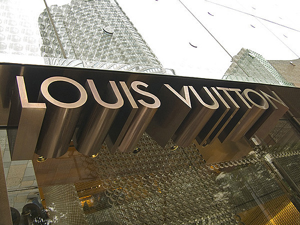 The San Francisco’s leading online daily SFGate reported that a federal jury in California has found two web hosting companies and their owner liable for contributing to trademark and copyright infringement for hosting sites selling counterfeit Louis Vuitton goods. The jury assessed damages totaling more than $32 million against web hosts Akanoc Solutions Inc., Managed Solutions Group Inc., and Steven Chen, the owner of the two companies.
The San Francisco’s leading online daily SFGate reported that a federal jury in California has found two web hosting companies and their owner liable for contributing to trademark and copyright infringement for hosting sites selling counterfeit Louis Vuitton goods. The jury assessed damages totaling more than $32 million against web hosts Akanoc Solutions Inc., Managed Solutions Group Inc., and Steven Chen, the owner of the two companies.
In awarding the damages, the jury agreed with Louis Vuitton Malletier S.A.’s claims that the defendants knowingly allowed several websites they hosted to sell products that infringed Louis Vuitton’s copyrights and trademarks.
The U.S. District Court for the Northern District of California is expected to issue a permanent injunction banning the web hosting providers from hosting websites which selling fake Louis Vuitton goods in the future.
California Based Court Paved A Way Web Hosts To Be Sued For Their Customers Conducting Illegal Activities
Attorneys of the Louis Vuitton said that the case is the first successful application on the Internet of the theory of contributory liability for trademark infringement. Under this theory, any companies that know, or should know, that they are enabling illegal activities have an obligation to remedy the situation. Web hosts that fail to do so can be held legally responsible for contributing to the illegal activities.
Lawyers of Mr. Chen, the owner of both web hosting providers had argued that Akanoc Solutions, a company that enable Chinese citizens to launch enterprises in United States and Managed Solutions were protected under the Digital Millennium Copyright Act‘s (DMCA). This is a law that limits the liability of ISPs for activities by its customers that might constitute copyright infringements. The defense lawyers said that Steven Chen and web hosting providers could not be held liable for the actions of websites they hosted but did not directly own or operate.
However the Louis Vuitton lawyers claimed that Steven Chen’s web hosting companies were contributing to the illegal activities conducted by their customers by providing the infrastructure that enabled the sale of counterfeit goods. They further said that web hosting providers had been informed of the activity by Louis Vuitton but refused to implement a policy for removing the offending sites, which was their responsibility.
A New Standard For Trademark Infridgements
The verdict “establishes a standard” for trademark infringement complaints on the Internet. In an interview with Computerworld today Andy Coombs, Louis Vuitton’s counsel said the verdict shows why it’s important for web hosting providers and ISPs to enforce acceptable use policies. “It’s one thing to have these policies, but you’ve got to implement them when given notice of abuse,” said the LV lawyer.
In the above described case, Louis Vuitton showed that it had sent numerous notices to the web hosting companies, but they were ignored or the companies didn’t acte upon expeditiously.
Reactions
The verdict drew mixed reactions. A forums poster who signed the comment as Bret Clark said in a discussion thread among network engineers in the NANOG website, that ISPs and web hosts shall not being held responsible for “policing its customers. “I’m constantly getting called up from scammers trying to [offer] me bogus warranty insurance for cars I don’t own. Does that mean I can sue Verizon because they are letting scammers use their network?”, said the poster.
“Jamie”, another user of the forum said that web hosts cannot ignore notification about one of its customers indulging in possibly illegal activities.
“It’s the first one in an Internet case where a web hosting provider was found liable for trademark infringement for failing to shut down a website after being given notice” of trademark infringing activities, said David Johnson, a lawyer specializing in digital media law in Los Angeles. He called the verdict precedent setting.
Under existing precedent a claimant who is seeking to prove a trademark infringement needs to prove that a defendant intentionally and knowingly enabled another to infringe a trademark. In the above described case, the court was convinced by the evidence presented by Louis Vuitton that the web hosting providers knew about the infringing activity.